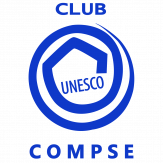Union and innovation in the face of COVID-19
V International Forum
UNESCO Clubs
Education on the way to sustainable development
Since the foundation of the first UNESCO club in Japan, in 1947, UNESCO Associations, Centers and Clubs are members of non-governmental organizations of great value to the Organization.
Members of the UNESCO Club movement in Latin America and the Caribbean are all volunteers of all ages, nationalities and social classes. They share a commitment to UNESCO's ideals and work to make them a reality in every nation with ideas and actions that contribute to the development of humanity.
ABOUT US
MISSION
Promote four main categories of UNESCO Clubs in Latin America and the Caribbean:
• Clubs established in schools (whose members are students and teaching staff of educational institutions).
• Clubs to operate in universities and higher education institutions.
• Clubs not intended exclusively for schoolchildren or university students: they have a recognized legal status and among their members there are outstanding personalities from cultural circles or the public sector of the community.
V International Forum on Education on the way to Sustainable Development
Objective: To carry out a diagnosis, reflect and propose the redesign of strategies to define Education and its articulation with the Sustainable Development Goals to achieve: peace, justice, human rights, world citizenship, and stop climate change.
The V International Forum reflects on the following priorities:
Restructure the link between education and the elements of the social environment, to influence a transformation of society as a whole. That is, to achieve that education transforms the development model to change the order of things and configure another life and another society.
Build a pedagogical proposal based on formal, informal, and non-formal education; the dimensions of social-emotional and behavioral learning, consider the place of residence as a space for learning, as well as innovate a pedagogical model in the current situation of school closures.
UNESCO declares environmental education must be a core curriculum component by 2025



